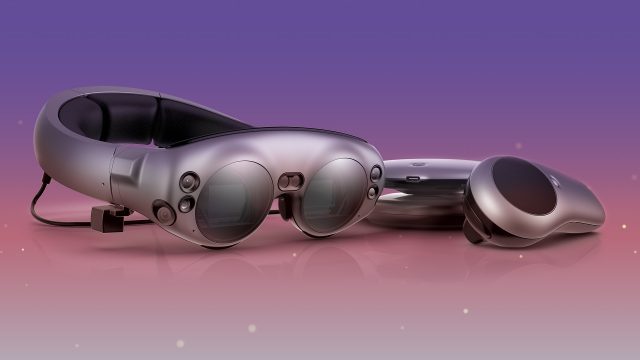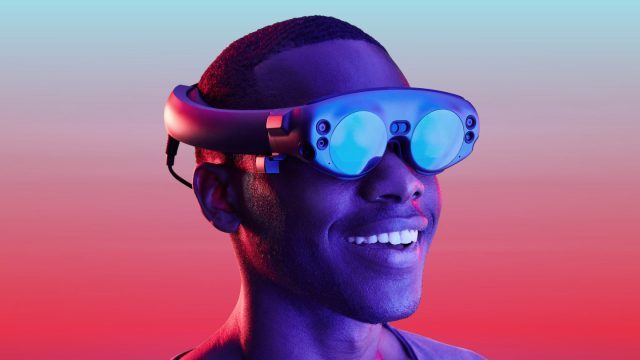Magic Leap today launched their long-teased AR headset, the Magic Leap One Creator Edition, a developer-focused device priced at $2,300.
Magic Leap has been in development of an AR headset, which has garnered significant anticipation thanks to the company’s massive trove of venture funding (totaling more than $2 billion) and years of concept videos, celebrity endorsements, and guarded teasing.
Today the company has officially launched the Magic Leap One Creator Edition, available to be “hand delivered” in select cities. There doesn’t appear to be a complete list of cities where the headset is currently available, so you’ll have to check your zip code against the order page to find out if the headset is available in your area. The company maintains that regional availability is “growing daily.”
In the Magic Leap One, the company has promised a complete AR platform which can seamlessly mix digital imagery into the real world.
The headset’s launch reveals a few previously unknown specifications—including a 3 hour battery life, 8GB of RAM, and 128GB of storage—but the company still isn’t publicly divulging key specs like resolution and field of view. Official specs indicate the following:
CPU
NVIDIA® Parker SOC; 2 Denver 2.0 64-bit cores + 4 ARM Cortex A57 64-bit cores (2 A57’s and 1 Denver accessible to applications)GPU
NVIDIA Pascal™, 256 CUDA cores; Graphic APIs: OpenGL 4.5, Vulkan, OpenGL ES 3.3+RAM
8GBStorage
128 GB (actual available storage capacity 95GB)Power
Built-in rechargeable lithium-ion battery. Up to 3 hours continuous use. Battery life can vary based on use cases. Power level will be sustained when connected to an AC outlet. 45-watt USB-C Power Delivery (PD) chargerConnectivity
Bluetooth 4.2, WiFi 802.11ac/b/g/n, USB-C
The company also confirmed that prescription inserts will be available for the Magic Leap One so that those with glasses can use the headset without sacrificing sharp vision.


Lightfields and brain stuff
Magic Leap One’s unique design and technology lets in natural light waves together with softly layered synthetic lightfields. Both the real world and virtual light rays initiate neural signals that pass from the retina to the visual part of the brain, creating unbelievably believable experiences.
While the headset is now available for purchase, it isn’t clear how soon the first units will arrive, but we’ll keep our eyes out for reports.

